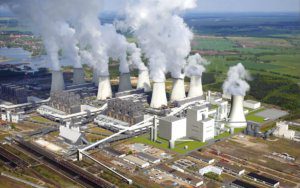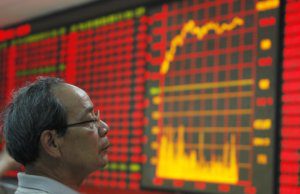
Briorson Motors has started production of ambulance vehicles in Ukraine on the basis of a Hyundai H350 minibus, according to a press release of the company. “By the end of this year it plans to produce 80 ambulances,” the company said.
“The main goal of our company is to create a quality product for providing medical assistance in any climatic zones and in off-road conditions. Our vehicles cope with their tasks both in urban conditions and on bad roads in remote rural areas,” Briorson Motors representative Vladyslav Kotliarenko said. According to him, the production plan for 2019 is 500 special vehicles.
The company told Interfax-Ukraine the production facilities of Briorson Motors are located in Cherkasy. According to the state register, Briorson Motors LLC with a charter capital of UAH 100 is registered in Kyiv in November 2017. Its core business is production of vehicles. The owner of the company is Kolares LLC (Kyiv), the ultimate beneficiary is Vadym Kotliarenko. Andriy Honcharenko has been its head since August 2018.

Ukraine needs foreign direct investment (FDI) to provide stable growth, and one of the fastest instruments for attracting at least $15-20 billion could be the offer of state-owned agricultural land estimated at 10 million hectares, Managing Partner of ICU Investment Group Makar Paseniuk has stated. “Land reform would be a huge driver for the further development of our country, as it can be done quickly and it will quickly attract FDI,” he said at the Ukrainian Financial Forum organized by ICU in Odesa.
Paseniuk said that the total area of agricultural land in Ukraine is estimated at 20-25 million hectares, of which about 10 million hectares still belong to the state. According to him, the average rent rate is $140-150 per hectare a year, which, taking into account the conservative estimate of a 10% rate, entails the cost of land of $1,500-2,000 per hectare.
“Thus, the cost of all state farmland is $15-20 billion, which can be compared with the existing IMF program in the amount of $17.5 billion or more, which twice as much as the NBU’s net reserves of $6.8 billion,” the expert said.
He urged the state to actively offer large investment projects in other sectors.
“I cannot name an economically viable project in which a private investor can now invest $1 billion,” Paseniuk stated.

Foreign pharmaceutical companies are ready to provide Ukraine with instruments that will give access to innovative medicines without reducing the level of protection of intellectual property rights. “The companies that are members of the American Chamber of Commerce in Ukraine are ready to actively join this work and cooperate with all the interested parties to ensure effective solutions,” Vitaliy Gordienko, the co-chairman of the American Chamber of Commerce’s (AmCham) Healthcare Committee, said when presenting the issues of patients’ access to innovative medicines, which took place in Kyiv at the beginning of the week.
He stressed that non-compliance with patent law and a lack of intellectual property rights protection does not entail a reduction in prices for medicines.
At the same time, innovative pharmaceutical companies that are members of AmCham are ready to provide Ukraine with appropriate mechanisms to reduce prices and ensure equal access to medicines, in particular, confidential negotiation procedures, free goods, long-term contracts, direct contracts.
At the same time, Ukraine should create a regulatory framework for the application of a negotiation procedure, in particular, in the sphere of budget purchases.
Gordienko also drew attention to the importance of introducing the national list of essential medicines. However, according to the expert, the procedure of including drugs in the national list should not exclude the possibility of getting into it of innovative drugs that are used, in particular, at the secondary and tertiary levels of medical care.

Electricity production in the united energy system of Ukraine in January-August 2018 increased by 2.1% (2.122 billion kWh) compared to the same period in 2017, to 104.285 billion kWh, the Ministry of Energy and Coal Industry has told Interfax-Ukraine. Nuclear power plants (NPP) in the period reduced electricity production by 7.2%, to 54.111 billion kWh, in particular, electricity generation at Zaporizhia NPP amounted to 24.873 billion kWh (2.6% more compared to January-August 2017), Yuzhnoukrainsk NPP some 10.402 billion kWh (3.5% less), Rivne NPP to 9.435 billion kWh (25.3% less), Khmelnytsky NPP to 9.408 billion kWh (11.8% less).
Thermal power plants (TPP), as well as combined heat and power plants (CHPP) and cogeneration plants increased production by 10.3%, to 38.070 billion kWh. In particular, the generating companies of TPPs raised production by 11.7%, to 31.038 billion kWh, while CHPP and cogeneration plants by 4.6%, to 7.032 billion kWh.
Hydroelectric and hydroelectric pumped storage power plants increased generation by 32.5%, to 9.398 billion kWh, while block stations decreased it by 0.3%, to 970.3 million kWh.
Electricity production by non-traditional sources (wind power plants, solar stations, biomass) for the eight months increased by 37.5%, to 1.730 billion kWh.
The share of nuclear power plants in the structure of electricity production was 51.9% (in January-August 2017 some 57.1%), TPPs, CHPPs and cogeneration plants some 36.5% (33.8%), hydroelectric and hydroelectric pumped storage power plants some 9% (6.9%), block stations 0.9% (1%), and alternative sources 1.7% (1.2%).

China’s Bohai Commodity Exchange (BOCE) on September 18 repeatedly submitted an application seeking the approval of the acquisition of a stake in the share capital of PJSC PFTS Stock Exchange (Kyiv), Head of the Antimonopoly Committee of Ukraine Yuriy Terentiev has told Interfax-Ukraine. “The Chinese side [in May 2018] applied for an agreement to acquire a stake in the PFTS, but since the seller’s control relationships were poorly disclosed, this served as the basis for returning the application. This week, on Tuesday, the party addressed with a new application,” he said on the sidelines of the annual Ukrainian Financial Forum in Odesa organized by ICU investment group.
The head of the committee added that if the documents are properly presented, an appropriate permit can be granted within 45 days.
In addition, Terentiev said that regarding the Ukrainian Exchange, which announced its intention to offer 36% of the additionally issued shares to BOCE, the committee has not yet received the application.
Earlier, BOCE studied the possibility of buying more than 25% of the shares in PJSC PFTS Stock Exchange and in early May 2018 asked the Antimonopoly Committee of Ukraine for preliminary conclusions on the acquisition of such a stake.

Windkraft Ukraine LLC (Skadovsk, Kherson region) by the end of this year plans to bring the installed capacity of its wind farms in Kherson region to 170 MW and the company is mulling the next project to boost them by another 150-170 MW, Windkraft Ukraine Director Carl Sturen has said. “By the end of the year there will be 170 MW: 100 MW have been added,” he told Interfax-Ukraine on the sidelines of the recent YES Conference organized by the Victor Pinchuk Foundation in Kyiv, commenting on the development of the company in 2018. Sturen said that this year the company used its own funds and bank loans. According to him, to implement plans for further expansion, Windkraft Ukraine will consider various financing options.
The director said that while the company, using its own resources, began to build a substation that will allow increasing the capacity. He said that the new sites are not far from the already developed ones.
Asked why Windkraft Ukraine remains committed to wind farms, not solar power plants, which are more popular among investors due to a higher tariff and lower investment, Sturen said that he considers the windfarm business more sustainable. “The wind is more sustainable: it is more complicated, but it fits better with the energy system and is better for the consumer,” the director said.